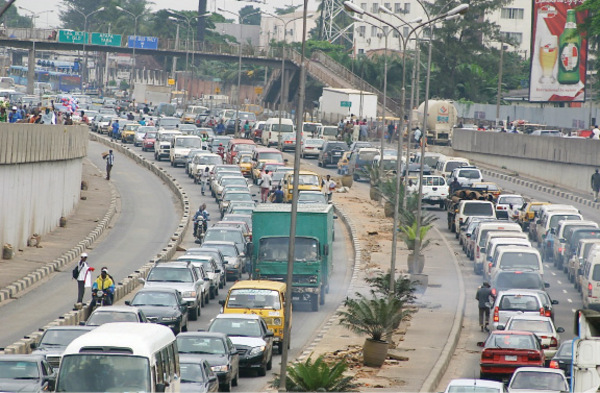The Federal Government has urged state governments yet to establish traffic management agencies to do so in order for Nigeria to consolidate on the National Traffic System.

Secretary to the Government of the Federation (SGF), Mr Boss Mustapha, made the call in Abuja, on Tuesday, March 19, 2019 at a workshop on “Activation of the Five United Nations Conventions on Road Traffic acceded to by Nigeria”.
The workshop was organised by the Office of the Secretary to the Government of the Federation in conjunction with the Federal Road Safety Corps (FRSC).
The five Conventions and Agreements acceded to by Nigeria last year included the 1968 Convention on Road Traffic, 1958 Agreement Concerning the Adoption of Uniform Technical Prescriptions for Wheeled Vehicles.
Others are 1998 Agreement Concerning Establishment of Global Technical Regulations for Wheeled Vehicles, Equipment and Parts which can be fitted and/or used on Wheeled Vehicles.
“The 1997 Agreement Concerning Uniform Conditions for Periodic Technical Inspections for Wheeled Vehicles and 1957 Agreement Concerning the International Carriage of Dangerous Goods by Road”.
The SGF who was represented by the Permanent Secretary General Services, Mr Olusegun Adekunle said that it was also advisable for states to ensure periodic vehicle testing and inspection by establishing Automated Vehicle Inspection Centres.
Mustapha said that the country was committed to global road safety management effort and the zeal to build effective transport policies and strengthen the framework for sustainable road safety systems.
He said that FRSC from inception in 1988 adopted a combination of education campaigns and other multi-dimensional best practice initiatives to progressively reduce the rate and severity of road traffic crashes in the country.
He said that credible statistics revealed that road crashes across the country had been brought down from 25, 792 at inception to 9,383 at the end of 2017.
Mustapha further said that the country was on course toward achieving the Decade of Action to reduce the projected national road crash fatality by 50 per cent in 2020.
“Nigeria through the FRSC has institutionalised enduring structures and mechanism to entrench inclusive road culture and sustaining continual improvement for safer motoring environment in the country.
“To this end, we are currently putting finishing touches to the second edition of the Nigeria Road Safety Strategy (NRSS) 2018 to 2022.
“This is a document designed to reinforce a comprehensive and coordinated national approach aimed at harmonising the efforts of various road safety stakeholders in Nigeria.”
He said that Nigeria as a responsible member of the UN remained committed to living up to is obligation by complying with all relevant international conventions, treaties and agreements.
“The accession instruments had been signed by President Muhammadu Buhari and had been formally deposited at the UN Chief Treaty Office in October 2018.
“The accession to the documents places Nigeria on an enviable position as the 12th country in Africa and 78th the world over to have acceded to 11 UN Conventions on road safety.”
Minister of Transportation, Mr Rotimi Amaechi, said that collaboration with more stakeholders was crucial in achieving compliance with international standards.
He said that the ministry was optimistic that the accession to these Conventions and more stakeholders’ engagements would go a long way in giving Nigerians safer roads and ultimately reduce crashes in the country to the barest minimum.
The Corps Marshal, Mr Boboye Oyeyemi, said that the conventions would enhance road traffic administration and safety management for the country.
He said that with the compliance to the Conventions, FRSC would ensure that trailers carrying explosives and toxic goods fulfilled the minimum requirements for road safety.
The FRSC said that, currently, only 18 states had established traffic management agencies.
Oyeyemi, listed the compliant states to include Kaduna, Kano, Lagos, Ogun, Delta, Anambra, Cross River, Kwara, Ekiti, Abia, Imo, Sokoto, Zamfara, Osun, Ondo, Oyo, Rivers and Niger.
By Naomi Sharng
